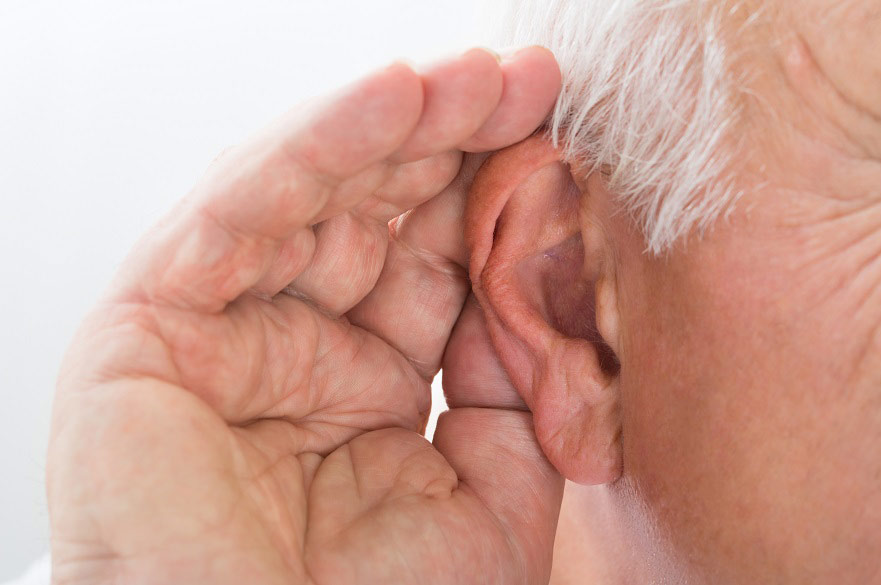I hear what you say! Or do I?
Even with an acute sense of hearing adults don’t always pick up exactly what someone has said, a new study suggests.
By Dave Rogers | Published on 28 August 2018
Categories: Press office; Research; School of Social Sciences;

This is because from childhood to adulthood, people rely on vision to understand speech and this can influence our perception of sound.
The study, carried out by PhD student Rebecca Hirst, from the University of Nottingham, in collaboration with her colleauges Dr Harriet Allen and Dr Lucy Cragg and Jemaine Stacey and Dr Paula Stacey from Nottingham Trent University, shows there is a developmental shift in sensory dominance as children grow older.
In 1976 the McGurk effect demonstrated the interaction of hearing and vision in speech perception. When we hear one syllable, but we see the mouth movement of another syllable, this leads us to perceive a third syllable.
Additionally, if a person is getting poor quality auditory information but good quality visual information, they may be more likely to experience the McGurk effect.
It’s down to the way our brain develops
Researchers predicted that younger children would be less susceptible to McGurk responses and that adults would continue to be influenced by vision in higher levels of visual noise and with less auditory noise.
This is due to a part of the brain - which is responsible for auditory information - developing earlier than a part of the brain, which is responsible for processing visual information.
It is also due to children gaining more visual experience across childhood, (for example, when reading.)
The study showed that susceptibility to the McGurk effect was higher in adults compared with 3–6-year-olds and 7–9-year-olds but not 10–12-year-olds.
Adults and older children were more easily influenced by vision.
Reduced susceptibility in childhood supports the theory that sensory dominance shifts across development and reaches adult-like levels by 10 years of age.
Rebecca designed a ‘spy’ game called ‘Spot the Sound’ to launch her study during a science event for young children and their parents.
They recruited 96 children at the event and separated them into three age groups 3-6 years; 7-9 years; and 10-12 years. They were joined by 32 adults aged between 20 and 35 years of age.
Rebecca, a PhD student in the University of Nottingham’s School of Psychology, said: “Our findings show that children rely more on auditory information. This means they are less susceptible to illusions in which vision changes sound. Conversely, adults are more likely to be influenced by what they see, and what they see can change what they hear."
Future research could focus on how much visual or auditory experience drives changes in perception for example, screen time or musical experience. Our findings are important for understanding how children perceive the world differently to adults and how this might influence the information they pay attention to.
Jemaine Stacey, a PhD student in Nottingham Trent University's School of Social Sciences.
The study called ‘The threshold for the McGurk effect in audio-visual noise decreases with development’ has been published in Scientific Reports.
Notes for Editors
Press enquiries please contact Dave Rogers, Public Relations Manager, on telephone +44 (0)115 848 8782, or via email.
About Nottingham Trent University
Nottingham Trent University (NTU) was named University of the Year 2017 at the Times Higher Education Awards, and Modern University of the Year in the Times and Sunday Times Good University Guide 2018. These awards recognise NTU for its high levels of student satisfaction, its quality of teaching, its engagement with employers, and its overall student experience.
NTU has been rated Gold in the Government’s Teaching Excellence Framework – the highest ranking available.
NTU is one of the largest UK universities. With 30,000 students and more than 4,000 staff located across four campuses, the University contributes £900m to the UK economy every year. It is one of the UK’s most environmentally friendly universities, containing some of the sector’s most inspiring and efficient award-winning buildings. 96% of its graduates go on to employment or further education within six months of leaving.
Our student satisfaction is high: NTU achieved an 88% satisfaction score in the 2018 National Student Satisfaction Survey.
The University is passionate about creating opportunities and its extensive outreach programme is designed to enable Nottingham Trent to be a vehicle for social mobility. NTU is among the UK’s top five recruiters of students from disadvantaged backgrounds.
NTU is home to world-class research, and won The Queen’s Anniversary Prize in 2015 – the highest national honour for a UK university. It recognised the University’s pioneering projects to improve weapons and explosives detection in luggage; enable safer production of powdered infant formula; and combat food fraud.
With an international student population of over 3,000 from around 100 countries, the University prides itself on its global outlook.